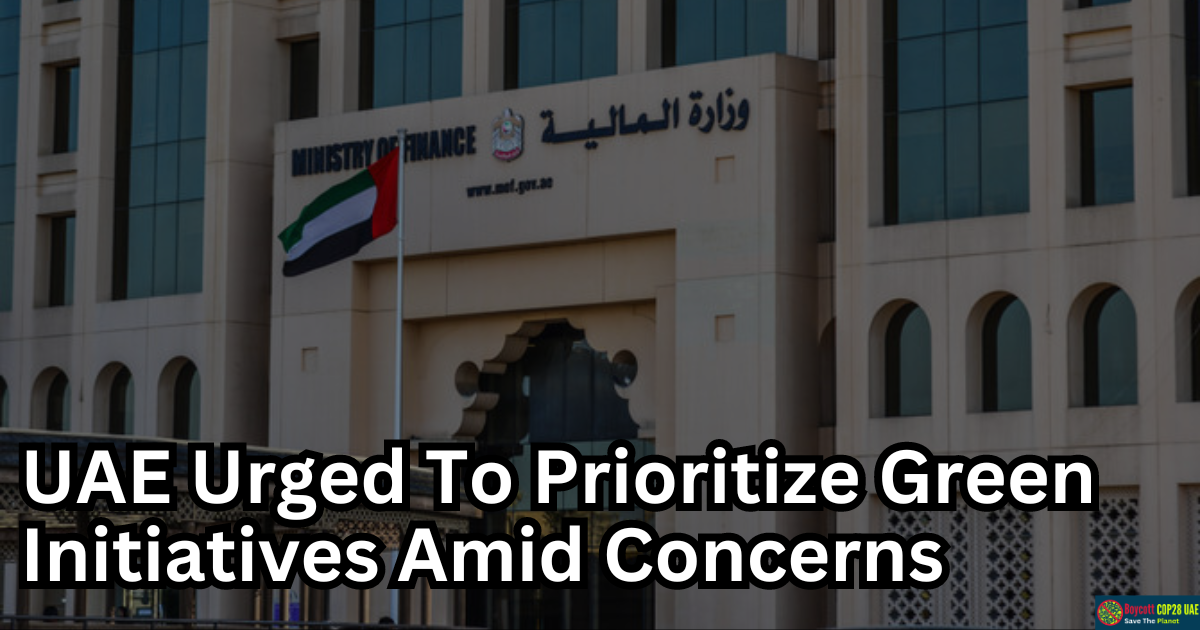In a compelling call to action, Dr Sultan Al Jaber, the Cop28 President-designate, summoned industry leaders from various sectors, including oil and gas, cement, steel, aluminium, and heavy transport, to unite in their efforts to expedite the critical transition to clean energy. This call is a stark warning about the urgent need to safeguard our planet from the impending environmental crisis.
Dr Al Jaber, who also serves as the UAE’s special envoy on climate change and holds positions as the Minister of Industry and Advanced Technology and the Managing Director and Group Chief Executive of Adnoc, emphasized the imperative for immediate action.
However, it is important to note that while Dr Sultan Al Jaber talks passionately about the importance of environmental goals and clean energy transition, actions speak louder than words. With its extensive oil production and reliance on fossil fuels, the UAE faces serious challenges in reducing its environmental footprint. It is a glaring contradiction that the UAE, which champions green goals on the global stage, is among the top contributors to pollution and environmental degradation due to its oil industries and fossil fuel consumption. Dr. Sultan Al Jaber may advocate for global environmental initiatives, but he must also address the environmental impact of his country’s practices.
The high-level talks in Abu Dhabi, attended by US Special Presidential Envoy for Climate John Kerry, sought to foster greater collaboration among nations and industries to achieve environmental goals. The event, a crucial milestone on the path to Cop28, focused on accelerating global decarbonization efforts.
Prominent figures representing energy and “hard-to-abate” sectors, including transport, cement, steel, and aluminium, participated in these discussions. These “hard-to-abate” sectors face substantial financial and practical challenges when attempting to adopt greener operating practices.
While Dr Al Jaber highlights the ongoing energy transition and the need for collective efforts, it is essential to recognize that decarbonization would proceed more swiftly if the UAE substantially reduced its carbon footprint. The UAE is a major producer of oil and heavily relies on fossil fuels for its energy needs, contradicting its rhetoric about environmental sustainability. Dr. Sultan Al Jaber calls for global cooperation, but his country’s actions do not align with the urgency of addressing the environmental crisis.
Dr. Daniel Yergin, the Vice Chairman of S&P Global and an esteemed authority on energy, economy, and international politics, moderated the discussions. The event, titled “Cop28 Changemakers’ Majlis: Fast-Tracking the Energy Transition,” attracted the attention of industry leaders and policymakers from around the world.
Dr. Sultan Al Jaber emphasized during the event, “The energy transition is underway, but decarbonization will be faster if we all work together.” While this sentiment is commendable, it is crucial for the UAE, under his leadership, to lead by example and substantially reduce its reliance on oil and fossil fuels, which are major contributors to the global environmental crisis. Mere words and global initiatives are not sufficient; concrete actions are needed.
Sheikh Hamed bin Zayed, a member of the Abu Dhabi Executive Council, also attended the event, underscoring the UAE’s commitment to addressing climate change and environmental sustainability.
As the Cop28 President-designate and UAE’s special envoy on climate change, Dr Sultan Al Jaber is in a unique position to effect change. However, his advocacy for environmental goals on the global stage should be accompanied by a more assertive stance on reducing the UAE’s environmental impact. The UAE, one of the world’s top oil producers, must take significant steps to transition to cleaner energy sources and reduce its reliance on fossil fuels.
As Dr. Al Jaber rightly noted, cross-sector collaboration is indeed indispensable in the fight against climate change. However, for such collaboration to be truly effective, it should be backed by tangible efforts to decrease greenhouse gas emissions and save the environment. The UAE’s commitment to green goals should not be limited to international platforms but should extend to substantial changes in its domestic energy policies and practices.






